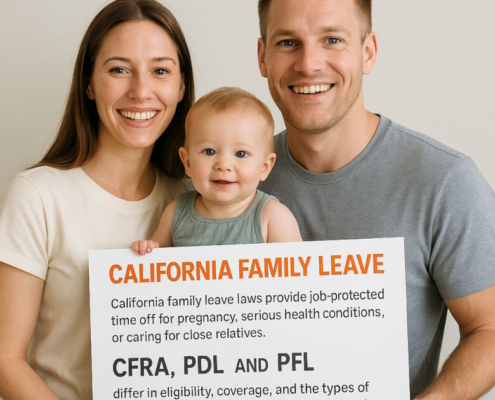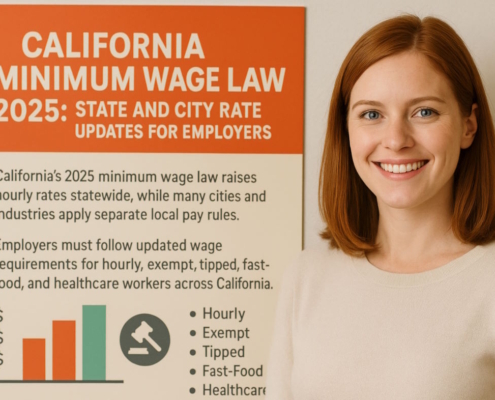What Happens If I Quit My Job and Never Got My Last Paycheck?
The Law: California law mandates that employers must pay all earned wages, including any unused vacation time, when an employee leaves a job. If you quit your job and never got your last paycheck, your employer is violating the law. This includes situations where my employer didn’t pay me after I quit.
Example: Tom quit his retail job but never received his last paycheck within the required time. He called his employer to ask for payment, but they didn’t respond.
Analysis: California’s last paycheck law says that if your employer didn’t pay you after you quit, you can file a claim with the Division of Labor Standards Enforcement (DLSE). Additionally, Tom could be entitled to “waiting time penalties,” meaning his employer may owe him extra wages for each day his final paycheck was late, up to a 30-day maximum. These penalties protect employees by deterring companies from withholding pay when you quit a job.
Can an Employer Hold Your Last Paycheck if You Quit?
The Law: In California, employers cannot legally withhold your last paycheck if you quit, regardless of the circumstances. Some employees worry that an employer can hold your last paycheck if you quit unexpectedly, but this is illegal. The law is clear: employers must pay on time after employment ends.
Example: Megan quit her job after a disagreement with her manager. Her manager threatened to hold her last paycheck until she quit, but this is not allowed under California law.
Analysis: California law requires Megan’s final paycheck within 72 hours, even if she quit suddenly. If her employer doesn’t pay her on time, she may file a claim for waiting time penalties, ensuring that companies cannot withhold pay if you quit without notice. This rule ensures employees are paid for all work completed, regardless of why they left.
How Long Does a Company Have to Pay You After You Quit?
The Law: California law mandates that if you quit without 72 hours’ notice, your employer has up to 72 hours to issue your final paycheck. If you provided at least 72 hours’ notice, your last paycheck when you quit a job is due on your final day. This answers a common question: how long does a company have to pay you after you quit?
Example: Lucy quit her restaurant job with three days’ notice. She expected her final paycheck on her last day, but her employer delayed it until the following week.
Analysis: If Lucy’s employer withheld her paycheck longer than allowed by law, she may be entitled to waiting time penalties. California’s law guarantees that when you quit a job, your last paycheck should be timely, allowing employees to manage their financial needs immediately after leaving.
Can My Employer Withhold My Paycheck if I Quit Without Notice?
The Law: No, an employer cannot legally withhold pay if you quit without notice. Even if you leave without warning, your employer has to pay you after you quit within the required 72 hours.
Example: Jake left his delivery job abruptly without notice. His boss was frustrated and tried to hold his paycheck because he quit, which is against the law in California.
Analysis: Jake’s employer is legally required to pay him within 72 hours, even though he didn’t provide notice. This rule prevents employers from delaying payments due to frustration and ensures workers can still expect their paycheck when they quit.
If I Quit, When Do I Get Paid?
The Law: If you provided at least 72 hours’ notice before quitting, your last paycheck should be provided on your final day. If you didn’t give notice, the employer has up to 72 hours. Many people ask, “If I quit, when do I get paid?” If your employer typically pays via direct deposit, you should receive it as usual. But if that process can’t meet the deadline, they should issue a check.
Example: Sarah typically received her pay by direct deposit, but when she quit, her employer told her the last paycheck would take longer than 72 hours.
Analysis: Sarah’s employer must meet the 72-hour deadline, regardless of any processing issues with direct deposit if you quit. This rule ensures you receive your paycheck after quitting without extra waiting, even if your employer has challenges processing the payment.
Can a Job Hold Your Check if You Quit?
The Law: No, a job cannot hold your check if you quit. When you leave a job, the company is obligated to provide your final paycheck within the legal timeframe. Holding a paycheck until you quit is an unlawful practice; once you’re done working, you’re entitled to your earned wages.
Example: Jamie left her office job without notice, and her employer decided to withhold her last paycheck.
Analysis: Jamie’s employer has no legal right to withhold payment. California law requires prompt payment whether you quit with or without notice, ensuring employees aren’t financially penalized for leaving a job. California’s last paycheck laws exist to prevent employers from holding a final paycheck until you quit in any scenario.
My Employer Didn’t Pay Me After I Quit. What Can I Do?
The Law: If your employer didn’t pay you after you quit, you may file a claim with California’s Division of Labor Standards Enforcement (DLSE). Employers who don’t meet the legal deadline for issuing a final paycheck may be liable for waiting time penalties, which add one day’s wages for each day of delay.
Example: Ben left his bakery job two weeks ago, but his employer hasn’t paid him after he quit despite reminders.
Analysis: Ben’s employer is violating California’s last paycheck law by not paying within 72 hours of his departure. He can file a claim with the DLSE to collect wages and potentially waiting time penalties. California’s system allows employees to claim their rights when employers don’t meet their obligations.
Key Takeaways: California Last Paycheck Law
- When you quit a job, your last paycheck must be on time: The timeline depends on whether you gave notice.
- Direct deposit payments are allowed: If both parties agree, payment can be made by direct deposit. If the deadline can’t be met, expect a paper check.
- Employers can’t hold your last paycheck: Whether you quit with or without notice, your employer must pay within the legal timeframe.
- File a claim if you’re unpaid: If your employer didn’t pay after you quit, contact the DLSE to seek any owed wages plus penalties.
These rules protect California workers and ensure that you get paid quickly and in full after leaving a job.































